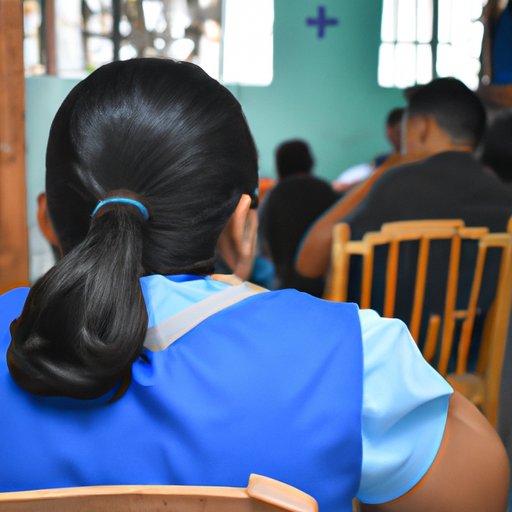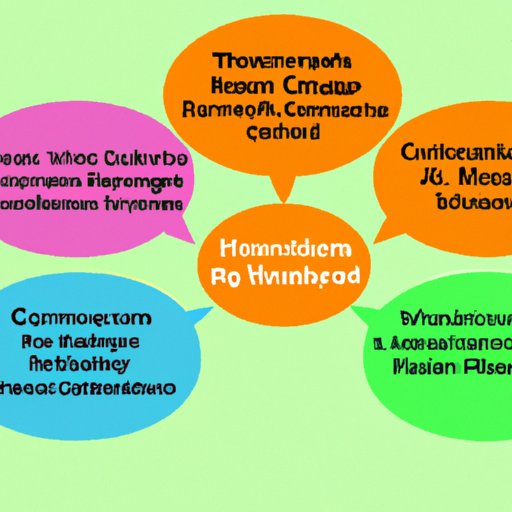Introduction
Community health workers play an important role in providing healthcare services to individuals and communities who may not have access to traditional medical care. They are responsible for connecting people with the resources they need, educating communities on health issues, and helping to improve the overall quality of life in their area.
A community health worker (CHW) is a frontline healthcare provider who works with individuals and families in their homes and communities. CHWs are often from the same communities they serve, making them more familiar with the culture and language of the people they are helping. This helps to build trust between the CHW and the people they are assisting, which can lead to better outcomes for everyone involved.
Education and Training Requirements
The educational requirements for becoming a community health worker vary depending on the state or country where you are working. In some areas, it may be possible to become a CHW without any formal education beyond a high school diploma. However, most employers will require at least some college coursework or certification in order to be considered for the position.
In the United States, most states require CHWs to have at least a two-year degree in public health or a related field. Some states also require CHWs to have a certification from the National Commission for Certifying Agencies (NCCA). Additionally, many employers prefer to hire CHWs who have additional certifications such as those offered through the American Public Health Association (APHA) or the National Board of Public Health Examiners (NBPHE).
In addition to formal education, CHWs must also receive specialized training in order to properly fulfill their duties. This training covers topics such as patient advocacy, cultural competency, and health promotion. It also includes instruction on how to work with diverse populations and provide culturally appropriate care.

Duties of a Community Health Worker
The primary responsibility of a CHW is to connect individuals and families with the healthcare services they need. This includes helping to find doctors, dentists, and other medical professionals, as well as assisting with filling out paperwork and scheduling appointments. CHWs may also help patients navigate the healthcare system and understand their rights and responsibilities.
In addition to connecting people with healthcare services, CHWs also work to educate their communities on health-related topics. This includes providing information on healthy living habits, disease prevention, and proper nutrition. CHWs may also assist with administrative tasks such as filing paperwork and tracking patient records.

Benefits of Becoming a Community Health Worker
There are many benefits to becoming a CHW. One of the most attractive benefits is job security. With the increasing demand for healthcare services, there is a growing need for CHWs. This means that those who pursue a career in this field can expect to have steady employment.
Financial benefits are another perk of becoming a CHW. Depending on the location and employer, CHWs may be eligible for benefits such as health insurance, paid time off, and retirement plans. Additionally, many CHWs receive competitive salaries and bonuses for their hard work.
Finally, working as a CHW can be personally rewarding. CHWs often develop relationships with their patients, which can be deeply satisfying. Knowing that you are making a difference in someone’s life can be a great source of motivation and pride.

Job Opportunities for Community Health Workers
CHWs can find job opportunities in a variety of settings. Public health organizations, local governments, and non-profit organizations all employ CHWs. Private practices and hospitals may also hire CHWs to provide outreach services to the community.
CHWs may also find opportunities to work in research or policy development. These positions involve working with data to identify trends and develop strategies to improve the health of communities. Research and policy positions typically require additional education and experience.
Impact of Community Health Workers
The impact of CHWs on the communities they serve cannot be overstated. By providing access to healthcare services, CHWs improve the overall health and wellbeing of individuals and families. They also work to bridge cultural and language barriers that can prevent people from receiving the care they need.
In addition to improving access to healthcare, CHWs also work to strengthen the local community. They do this by providing education on health topics, hosting events, and advocating for policies that benefit the community.
Finally, CHWs help to reduce healthcare costs by preventing illnesses and injuries. By educating people about preventive measures and connecting them with necessary care, CHWs can help to reduce healthcare spending.
Conclusion
Becoming a community health worker is a rewarding and challenging career. CHWs have the opportunity to make a real difference in the lives of those they serve, while also enjoying job security, financial rewards, and personal satisfaction. Those interested in pursuing a career as a CHW should take the time to learn about the education and training requirements, duties, and benefits associated with the job.
(Note: Is this article not meeting your expectations? Do you have knowledge or insights to share? Unlock new opportunities and expand your reach by joining our authors team. Click Registration to join us and share your expertise with our readers.)
